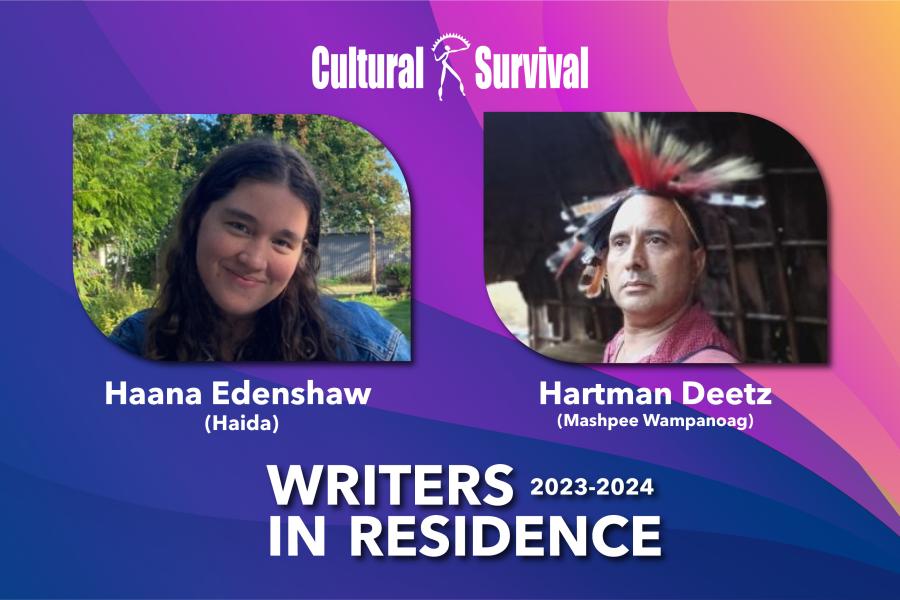The mission of the Alaska Native Leadership Project (ANLP) is to enhance our leadership qualities by development of personal and professional skills while maintaining cultural awareness, balance and pride. We achieve this through statewide networking, community involvement and continued education. Sharing and applying our knowledge secures the survival of our cultural heritage, organizations and the future of Native people. - Mission Statement, ANLP
The Alaska Native Claims Settlement Act (ANCSA) of 1971 changed the lives and culture of Eskimo, Indian and Aleut Natives in the state. Under its provisions, Alaska Natives retained 44 million acres of land and were compensated just under a billion dollars for the extinguishments of aboriginal title to 330 million acres. The act provided that the 44 million acres would be held under fee-simple title rather than aboriginal title. In addition, Congress authorized that corporations, rather than tribes would hold title to Native lands. ANCSA changed the relationship between the people and the land from communal use to individual ownership. The creation of corporations has forced rural communities to alter their traditional subsistence-based economies to include a capital or cash economy. Only recently has the significance and scale of the socio-economic changes and impacts of the act been perceived. The demand on Native leadership to establish and operate the alien corporate structure has been phenomenal.
In the past decade, Alaska Natives have only begun to fully understand the corporate and capitalist system. And many Native corporate leaders today have found themselves in a conflicted position between their traditional and corporate roles. While most would prefer to live in their villages, Native leaders must often leave their community to obtain higher education. While at school they attain a greater understanding of the Western world, and more than likely also adopt non-Native characteristics and values. Many feel alienated when they later return to their villages.
On the other hand, Natives with leadership potential who choose to remain in the village or even the state, lack the specific skills required to manage a corporation. While leaders who remain in the village are familiar with local issues and traditional culture, they may be handicapped by their lack of exposure to Western society.
Changes in the villages, such as new institutions or regulations governing hunting and resource use, have stimulated the need for Native leaders who interact effectively with outside organizations. Simultaneously, Native village culture has been affected by new social problems. Recent exposure to television and the portrayal of alien values needs to be a balanced by cultural and educational leaders who teach and reinforce traditional values among younger Natives. Fortunately, a young cadre of leaders is responding to the opportunities and needs created by the new institutions.
Corporations created under the act, like any other corporation, require managers and administrators with specialized training and skills. While these skills are generally acquired through educational institutions, an alternative method has gained increasing popularity in the past seven years. Specifically, the Alaska Native Leadership Project (ANLP) is an overwhelming success. ANLP does not replace academic degree programs, but it appears to be successful in offering "leadership tools" to Natives who have already demonstrated leadership potential.
ANLP is designed to meet the needs of Native people who are unable or unwilling to attend school for extended periods. The participants often hold responsible positions already, but see the need to improve their skills. ANLP offers its participants training in administration, the state's legislative process, personal skills development and Native land claim issues. Participants meet with the state's political and business leaders to discuss topics such as natural resource policies and rural development. At the same time, they receive college credit.
The program is funded by the state but is administered by the Alaska Native Foundation, a non-profit organization specializing in Native interests and research. The director of the program, Paula Rasmus-Dede, an Alaska Native, leads the participants through the rigorous and intensive training program. She asserts that the four one-week sections are equivalent to a graduate level program. The sections include self-awareness, managerial skills, political process and Alaska Native issues.
Participants are selected by ANLP graduates. Leadership qualities and commitment to the Native community are two of the criteria considered in the selection of candidates. The ANLP philosophy, according to Rasmus-Dede, is that many individuals may serve as leaders even though they are not necessarily in highly visible positions. A Native leaders need not be a prominent corporate or political figure, but can serve his or her community in a variety of ways.
The following are brief profiles of two ANLP graduates. Nancy Barnes is Aleut and Tsimpsian Indian from the village of Cordova. She is currently serving her second term as the chairman of her village corporation. The Eyak Corporation, in the village of 2,500 people, has slightly more than 300 shareholders and has investments in timber development on their own land, real estate, a marina and a building supply store.
Ms. Barnes was also recently elected as a board member for the regional corporation, the Chugach Alaska Corporation (CAC), which is composed of several other village corporations and covers the south-central region of Alaska. CAC has investments in fisheries, forestries and real estate. In addition to being a board member, Ms. Barnes has been appointed chairperson of the finance committee and is a member of their heritage foundation. She has been active for several years in Native politics and issues. Ms. Barnes has no degree or formal educational training beyond high school. According to her, the ANLP training gave her the motivation, confidence and background to run for the board of CAC and seek a political career. She intends to pursue a degree some time in the future.
Reginald Cleveland is an Inupiat Eskimo from the village of Shungnak. Last year, following his completion of ANLP, Mr. Cleveland ran a successful campaign for a seat on the assembly of the newly-formed Northwest Arctic Borough in Kotzehue and was recently elected vice mayor. In his village he is a city councilman, a council member for his federally-recognized traditional tribal government and the vice chairman for the advisory school board. Outside of vocational school and occasional bookkeeping classes at a local community college, Mr. Cleveland has no formal educational experience or degree. Before ANLP he was the postmaster in Shungnak.
Since the inception of the program seven years ago, 100 Alaska Natives from around the state have completed the program. While many of the graduates have gone into politics or the corporations, others have sought careers in education, private business and the federal government. While many were motivated to seek higher education, some graduates returned to their villages to continue hunting and fishing.
The college dropout rate among Alaska Natives is alarming. For most Natives, college is the first experience outside of the state or the community. Poor academic preparation, lack of academic competitiveness, social inexperience, racism and even dietary changes all contribute to the high Native dropout rate.
The success of ANLP can be attributed to its policy of culturally relevant material and sensitivity to its participants. The program is the only college accredited training program designed by Natives themselves to specifically meet the need for Native leadership. In addition the program is Native administered. ANLP gives participants practical knowledge and leadership skills without sacrificing their heritage or traditional values. In fact, the program reinforces Native values and belief systems. Part of the training is focused on the balancing and integration of Native and Western values - a struggle for Alaska Natives and Native Americans for hundreds of years. ANLP offers participants insight into resolving this conflict by developing self-confidence when functioning in both societies.
The program generates excitement and motivation. Natives from around the state who share common interests develop a strong sense of camaraderie - bonds that last beyond the final session. The groups develop a statewide network which helps to maintain confidence and provides a communication system for important issues.
In 1991 the restrictions on the sale of stock in Native Corporations will be lifted. Most Natives are fearful they will lose ownership and control of their ancient land. A majority of ANLP graduates are dedicated to resolving this issue. Several graduates from the 1985/86 program stated that they are "ready to take on the world" and left the program feeling "very proud to be Native."
Article copyright Cultural Survival, Inc.



